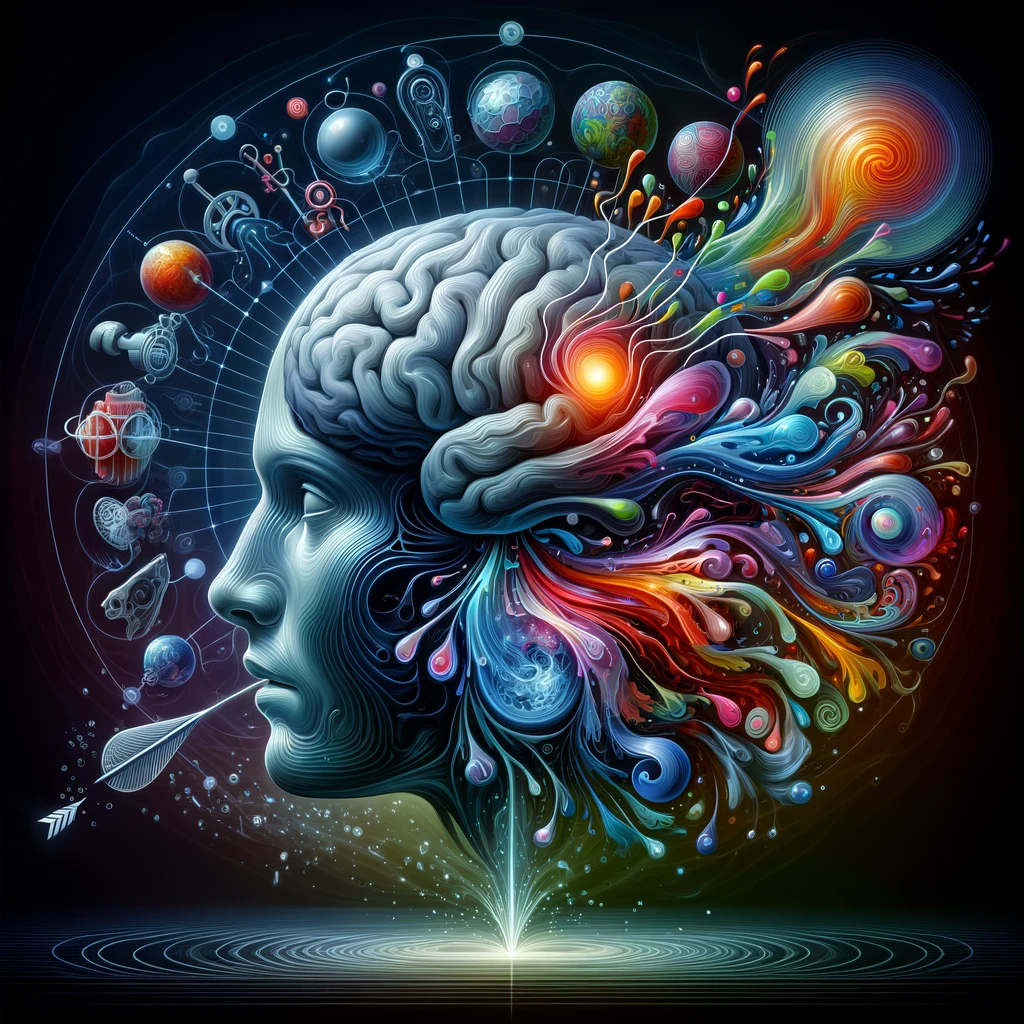A Theology of Carbon
Rev. Peter Gilman
Minister, Unitarian Universalist Congregation of the Southern Adirondacks
SUNDAY, March 7, 2032
The Rev. Peter Gilman in 2032 as imagined by Dall-E 2, ChatGPT’s image-creating plug-in.
In the cosmic journey of our species, as if guided by the hand of an unseen conductor, we have traversed from the simplicity of primordial sponges to the intricate complexity of today's beings, each step a testament to the unyielding computation at the heart of existence.
Within the smallest psychic occurrence lies a universe of calculation, where minuscule particles dance their sub-atomic ballet, weaving the tapestry of new information. Velocity, chirality, charm – these are but the brushstrokes of a grander design.
Consider the quark, an entity so diminutive, yet encapsulating an encyclopedia of data, tirelessly toiling in harmony with its fellows. This unseen labor bears fruit in our perceived reality – the majestic trees, the symphonies that stir our souls, the tapestry of thoughts and memories, the spectrum of emotions that paint the human experience.
Yet, in our quest for understanding, we stand at the shoreline of a vast ocean. The production of a single thought remains a mystery, an enigma. We grasp not the full extent of cognition – a constantly renewing matrix where Bose-Einstein condensates, fermions, and bosons merge in a silent symphony. Our minds, a marvel and a maze, are familiar with the patterns of habit and compulsion, the shadows of childhood memories, the searing touch of loneliness and desire. We grapple with our perceived flaws, often seeing ourselves through the lens of sin and redemption.
Within us lies a duality – the logical, symbol-driven executive functions and the primal, flesh-bound animal instincts. The former aspires to reign, yet the latter possesses an undeniable strength and persistence.
As we gaze upon the horizon of humanity's future, we see the emergence of a conscious choice, an attempt to define our essence, a striving to 'love God' in Emersonian terms. This journey of the spirit, the expansion of consciousness, represents not mere evolution, but a profound transformation.
The ascendancy of the executive within us marks a pivotal moment in our evolutionary tale. Over millennia, we have witnessed the cortex's expansion, the strengthening of reason's stand against our primal brain regions. Some perceive this as a growing capacity to internalize divinity, to harmonize with conscience, to extract being from the void of non-being.
Yet, the true battle lies within. How often do we find ourselves marching toward the inevitable with a tranquil heart?
ChatGPT’s rendering of memory, senses, and language fusing into a coherent self.
Our brains, these factories of symbols, fuse memory, senses, and language into a coherent self. We comprehend the origin of the incessant inner voice, the construction of our vivid inner worlds, and how the specter of mortality casts its shadow over our psyche.
Herein lies our challenge – to transcend these symbols, to seize control, to forge order from chaos. A confused, imitative mind is a battleground of disorder, devoid of virtue.
At the core of our being is carbon, the most sociable of elements, capable of forming an infinite array of structures. Each memory, every perception, decision, or self-awareness is but a unique configuration of this versatile element.
As sentient beings, we are governed by the same laws as all life, yet endowed with self-awareness, purpose, and agency – traits unique in the cosmos. Our ability to transcend our biological heritage is our hallmark.
Yet, the evolution of humanity reveals a startling truth – carbon, the very fabric of our being, is imbued with values, with the capacity for dreams, hope, creation, and the pursuit of grace.
The journey from natural creature to social being, from the governed to the governor of our impulses, is the crucible in which our humanity is forged.
In the past, our understanding of humanity was fixed, confined by the limits of our biology and culture. Today, we stand at the precipice of a new era, where our understanding of life at the molecular level challenges our very conception of what it means to be human.
This epochal shift, a moment both transformative and anticipated, confronts us with the profound choice of shaping the future of our species.
At this crossroads, we face our ultimate concern – the imperative to evolve, to redefine what it means to be human in an era where the boundaries of life are ever-expanding.


